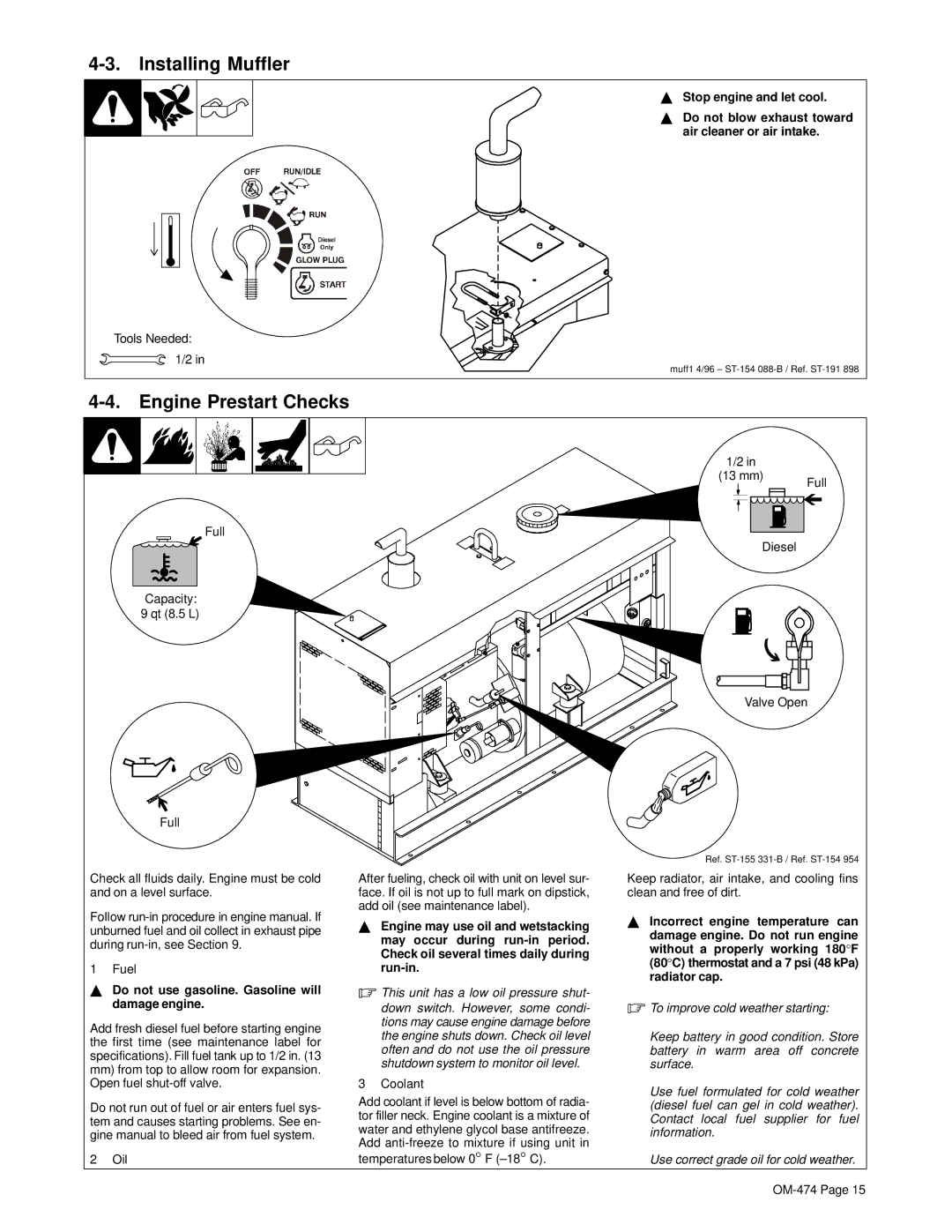
4-3. Installing Muffler
Y Stop engine and let cool.
Y Do not blow exhaust toward air cleaner or air intake.
Tools Needed:
1/2 in
muff1 4/96 –
4-4. Engine Prestart Checks
Full
Capacity: 9 qt (8.5 L)
Full
Check all fluids daily. Engine must be cold and on a level surface.
Follow
1 Fuel
YDo not use gasoline. Gasoline will damage engine.
Add fresh diesel fuel before starting engine the first time (see maintenance label for specifications). Fill fuel tank up to 1/2 in. (13
mm)from top to allow room for expansion. Open fuel
Do not run out of fuel or air enters fuel sys- tem and causes starting problems. See en- gine manual to bleed air from fuel system.
2 Oil
After fueling, check oil with unit on level sur- face. If oil is not up to full mark on dipstick, add oil (see maintenance label).
YEngine may use oil and wetstacking may occur during
.This unit has a low oil pressure shut- down switch. However, some condi- tions may cause engine damage before the engine shuts down. Check oil level often and do not use the oil pressure shutdown system to monitor oil level.
3 Coolant
Add coolant if level is below bottom of radia- tor filler neck. Engine coolant is a mixture of water and ethylene glycol base antifreeze. Add
temperatures below 0° F (–18° C).
1/2 in
(13 mm)
Full
Diesel
Valve Open
Ref.
Keep radiator, air intake, and cooling fins clean and free of dirt.
YIncorrect engine temperature can
damage engine. Do not run engine without a properly working 180°F (80°C) thermostat and a 7 psi (48 kPa) radiator cap.
.To improve cold weather starting:
Keep battery in good condition. Store battery in warm area off concrete surface.
Use fuel formulated for cold weather (diesel fuel can gel in cold weather). Contact local fuel supplier for fuel information.
Use correct grade oil for cold weather.
